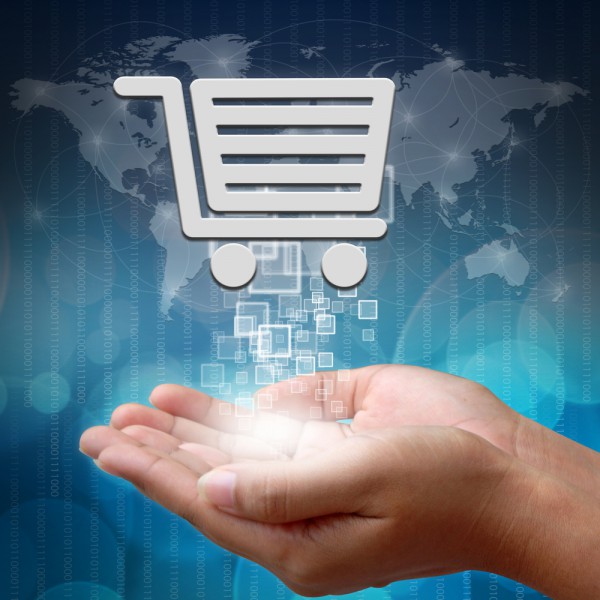
How E-commerce is taking over the world
The internet has been responsible for changing the way we go about many of the tasks in our day-to-day lives. Not least it has changed the way we shop.
Customer experience specialist Baynote has released a new infographic map showing the growth of e-commerce across the world.
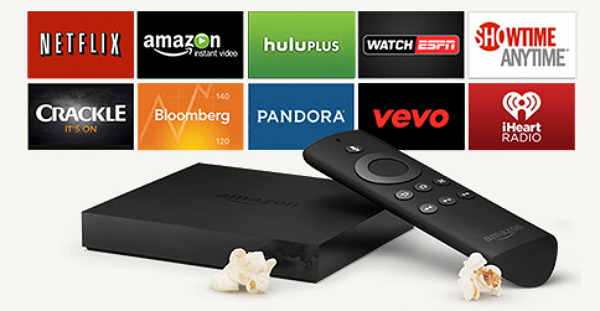
Amazon Fire TV ups the voice search ante, adds Hulu Plus and more
Amazon's Fire TV, a previously much-rumored device, is now officially on the market, with reviews cropping up around the web -- our own will be coming shortly. One known issue that seems to pop up is that the voice search only encompasses Amazon. But that landscape is already beginning to change.
Today, the retailer announces new partners in this endeavor. Hulu Plus, Crackle and Showtime, which were already present on the tiny set-top box, will now be included in search, starting this summer (a rather vague time frame).

Post Heartbleed, Tor could significantly reduce capacity -- but is it enough?
It seems that there have been few big names left unaffected by the Heartbleed bug in OpenSSL. Google may have rushed to patch the flaw, but the number of websites and services that fell foul of the discovery is staggering. It seems that even stalwarts of security are finding themselves in troubled waters, and this includes anonymizing service Tor.
Put very simply (very, very simply!), Tor works by not only encrypting data that is transferred online, but also bouncing it around a number of servers, making it all but impossible to trace to a particular user or computer. It transpires that some of the Tor nodes that are used in the process are running versions of OpenSSL that are vulnerable to Heartbleed, and this has led to calls for the affected nodes to be closed down. Writing to the Tor mailing list, developer Roger Dingledine suggests that up to 12 percent of the network's capacity may be lost if all of the vulnerable nodes are taken offline.
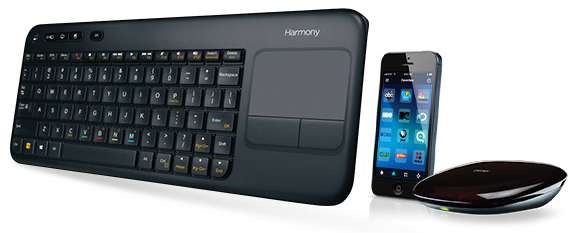
Logitech Harmony Smart Keyboard now controls Amazon Fire TV
It's been a busy couple of weeks in the home theater market, with a few major releases, including the Roku streaming stick, but also Amazon's much anticipated Fire TV and the latest offering from Harmony. The Logitech-owned company offers a number of smart remotes, but now also has the Smart Keyboard, designed to control your home theater.
The introduction of Amazon's Android-based box seemed to offer a challenge, as the remote is Bluetooth, but Harmony has stepped up and made it work.

New study claims 1 in 10 pay TV subscribers plan to cut the cord this year
Not long ago, I conducted a rather unscientific survey, asking readers if they planned to cut the cord in 2014. There was no voting, it simply relied on comments, as I wished to know your thoughts. A number of you had already taken the plunge, but we are dealing with a tech-oriented crowd. This isn't something my mom and dad will be doing -- they’d think I spoke a foreign language if I used the word Roku.
Morgan Stanley, who we don't tend to think of when it comes to media, went a bit further, taking a more scientific approach and collating the results into a nice graphic format.

Google is a bully, but that's not necessarily a bad thing
Google has a lot of mud thrown at it, and while a lot of it slides off, there is a good proportion that sticks. There are a variety of accusations levelled at the search giant -- evil, self-serving, monopolistic, nosey, invasive, overbearing, corporate, et cetera, et cetera -- but could it be that the power the company wields is actually a good thing? Could Google use the sway it holds over website owners to make the web a better place? But before we start praising Google, there's no harm in sticking the boot in first, eh?
For many people, Google is a bully. In the constant search for page views, ranking in Google matters -- it matters a lot. My colleague Joe Wilcox argues that writers should write for themselves and their readers rather than Google -- something I would strongly advocate -- but until this notion gathers momentum, there are still countless bloggers panicking themselves silly about what impact the latest search algorithm changes will have on their position in search results. It can be a constant game of catch-up, requiring endless changes to optimize content for maximum visibility -- all too often at the expense of readability and reader experience.
Why Microsoft's Perceptive Pixel is the coolest touch TV you can't buy (yet)
It's tough for me to get too excited about TVs these days. I'm past the glitz of the 3D craze. And "large" 60 and 70 plus inch screens are neat, but after enjoying a 114" viewing area thanks to my home projector the last few years, anything smaller pales in comparison.
Yet when I got to try out an 82" Perceptive Pixel touch TV at Microsoft's Chicago offices earlier today, I couldn't resist wanting one for my own condo or even office. It's that unique of a TV screen, and if when it goes mainstream, it will completely change the way we view interactive entertainment displays.

Fire TV tops Chromecast as best-selling electronics product on Amazon
Google’s Chromecast has been getting a lot of media attention in tech circles, mostly due to the ever-evolving number of services and websites throwing support behind the little HDMI dongle. Price also plays a part of it -- retail is a mere $35, and Amazon offers it for a hair under $30.
All of this attention has kept the product at the top of the best-seller list in the electronics category for sometime now. But last week Amazon disrupted the market by announcing Fire TV -- a small set-top box designed to compete with Chromecast, Roku, Apple TV and the like.
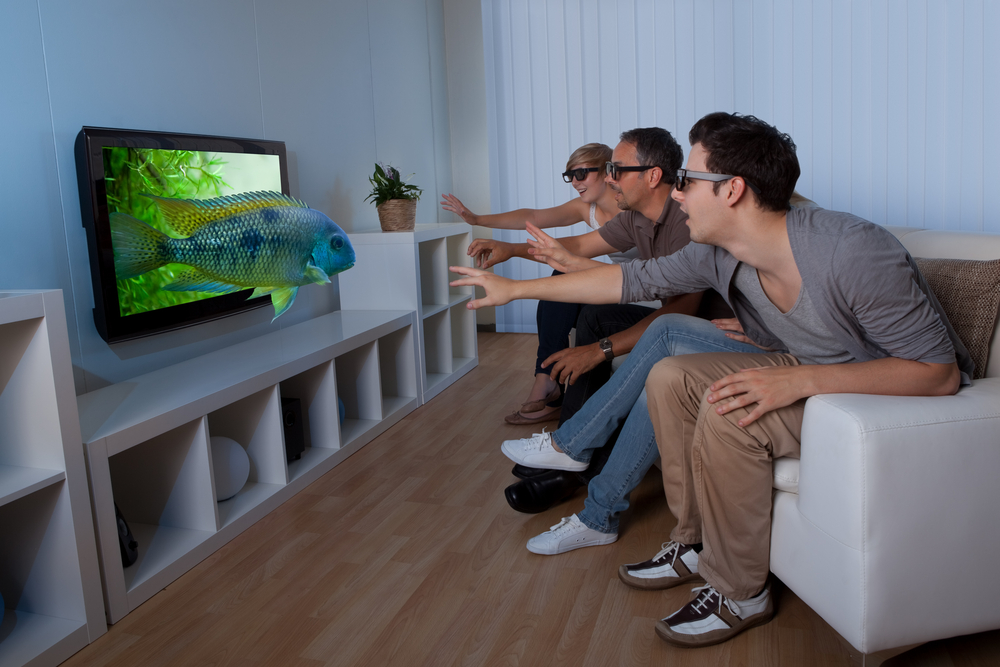
Why 3D TV is failing in the home
Does anyone remember Nintendo's Virtual Boy? It was an overpriced, underpowered 3D gaming system from the mid 1990s with little content and awkward hardware to justify its high price tag. Other pesky limitations, like the fact that you could really only play on it comfortably while seated at the dinner table, drove Nintendo to shut this commercial flop down before it became laughing stock for competitors like Sega and Sony.
I'm not interested in strolling down gaming's memory lane here. I never owned a Virtual Boy myself, as my Sega Genesis was enough to keep my gaming heart fulfilled at the time. While the premise of 3D was appealing, the means to getting there were impractical in every sense.
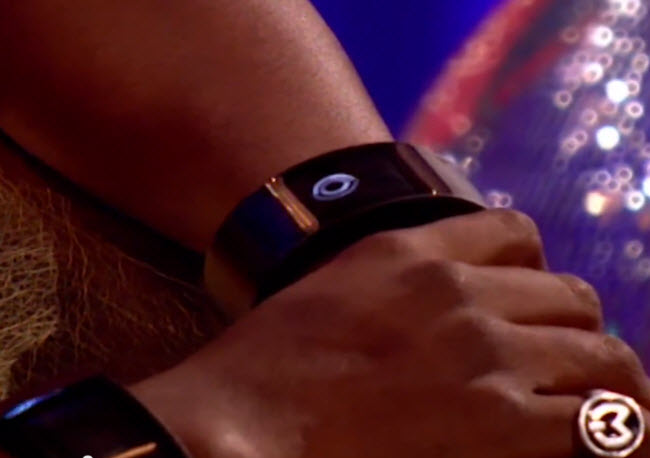
will.i.am has a self-designed smart watch ready to launch soon
Rapper, producer, Black Eye Pea and all round tech-loving futurist tech-head will.i.am has designed his own smart watch which will be ready for launch in the coming months. The music titan has, apparently, self-designed and self-funded a project which should lead to a release in July. Very little is known about the device at the moment, but it has made a few appearances on TV screens that give an intriguing glimpse of what's to come. Unlike other wearables, this one looks like it will not require tethering to a smartphone -- it will stand on its own two feet.
It's worth pointing out for non-UK residents that product placement (endorsements, 'support from', 'promotional consideration' or however you want to view it) does not really exist in the UK in the same way as in the US and some other countries. But that said, will.i.am has been spotted on more than one occasion, "subtly" interacting with a device strapped to his wrist. Viewers of The Voice in the UK (yeah, sorry, I've been known to dip into it from time to time) will probably have noticed him fiddling with his wrist, and reference has been made to his actions on a couple of occasions.

Nest halts sales of smoke and carbon monoxide alarm amid safety concerns
When people invest in a smoke alarm, it is done with the intention of making the home safer. Should a fire start during the night, for instance, it's good to know that there's something there to alert you. While most smoke alarms are fairly basic affairs, there are some more advanced models available, including from Nest Labs -- the company behind intelligent thermostat controls and the Nest Protect smoke alarm. But there are safety concerns about the device which could mean that the sounding of an alarm is delayed, leaving owners to burn to a crisp in their beds. Perhaps.
In a message on the Nest website, the company's CEO Tony Fadell explains that a feature of the smoke alarm is being disabled and the sale of units is to be stopped. Nest Protect -- which has the tagline "Cares for your family as much as you do" -- includes a feature called Nest Wave. The idea is that should you accidentally set off the alarm by burning the toast, you can shut it up by waving your hand in front of the device. The problem is that the feature can be, to use Fadell's words, "unintentionally activated".

Stop Google+ broadcasting the number of profile views you've received
It has often been said that making use of any social network is an exercise in vanity or narcissism. The likes of Facebook, Twitter, Google+ and other similar tools give anyone a platform to voice their views, concerns, complaints and anything else they feel inclined to get off their chest. But what matters about each of these social networks -- for the vane narcissist, at least -- is the number of people who are actually reading the words that are published. Unburdening online can be a wonderfully cathartic experience, but all the better if it is read by tens of thousands of people rather than just hundreds.
Each network gives you its own way to keep track of your potential audience. On Facebook, it's easy to keep track of the number of friends you have, while on Twitter it's the number of followers that's important -- as well, of course, as the coveted blue verified badge. Similarly on LinkedIn, it is easy to see how many people you’re connected to, and in the case of Google+ you can check how many people have circled you. But then there is the matter of how these figures translate into actual views.

LinkedIn 'hacking' tool Sell Hack no longer exposes user email addresses
One of the great things about social networks is that it is possible to connect with people without the need to share email addresses. This means that you can remain "friends" with someone on Facebook, but not get to the point where you're handing out your email address and worrying about checking your inbox. The same is true of LinkedIn, but the difference with this "professional network" is that you're probably connecting with a larger number of people you would rather didn’t have your personal contact details. This comforting level of security was wiped out by Sell Hack.
This free browser extension -- available for Firefox, Chrome and Safari -- could be used to expose the email address associated with any LinkedIn account, regardless of whether you are connected to the person you are, essentially, spying on. Perhaps understandably, this caused a degree of upset and resulted in LinkedIn sending a cease and desist notice to the extension's developers. Sell Hack adds a "Hack In" button to social network pages which, when clicked, reveals the email address used by the account owner to create their page.

One in two think expressing opinions online is unsafe
In the post-Snowden world it's hardly surprising that many people believe that their every online move is being watched.
A new global poll carried out by GlobeScan on behalf of the BBC World Service reveals just how widespread these feelings are. Having polled over 17,000 people across 17 countries it finds that 52 percent believe the internet is an unsafe place to express opinions.

5 features of Windows that need defenestrating -- including IE
Defenestrating? Pretentious? Moi?! How could you?!
Don't get me wrong, I love Windows. A fanboy I am not -- I'll quite happily pick holes in Microsoft's operating system -- but for the most part I do love it. While I have a great deal of time for Windows, it doesn’t mean there isn't room for improvement. By this I don’t mean that Microsoft needs to bring back the Start menu or start copying features from OS X or Linux, rather that it's time to have spring cleaning. In just over a week, Windows XP will be consigned to the OS graveyard, but what about Windows 8.1? The latest version of Windows doesn't need to be killed, but there are lots of features that need to be put out of their misery.
